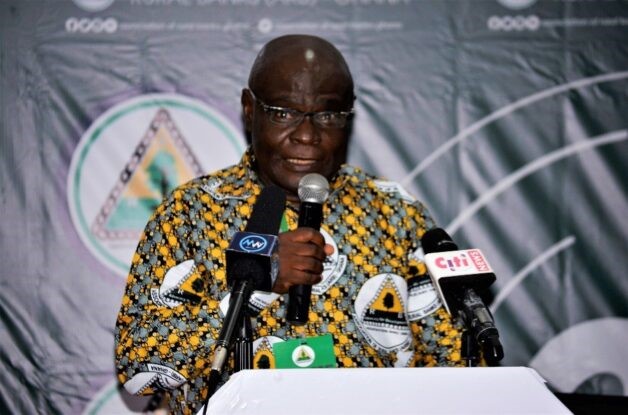Allow profitable rural banks to pay dividend -RCBs appeal to Bank of Ghana

According to him, while the intention is to build up capital resources to beef up the capital base of banks in order for them to be able to take on more businesses or absolve any contingent losses, the implementation of the directive must be done in moderation.
He said RCBs that are operating in a ‘sound base’ and profitable should be excluded and allowed to pay dividend to its shareholders.
The Central bank, in a recent notice to banks and Specialized Deposit Taking Institutions (SDIs) directed them to refrain from declaring and paying dividends or making other distributions to shareholders for the 2019 financial year.
It said “unless the Bank of Ghana is satisfied, that the institution meets the regular prudential requirements and is not relying on the additional liquidity released by its policy measures to pay shareholders.
The move is believed to be part of the measures by the regulator to address the disruptions brought by the global outbreak of COVID-19 on the financial sector.
However, the development has not gone down well with shareholders who are said to have demonstrated their disapproval during the announcement at various shareholder’s meetings of RCBs.
Mr. Ohene Owusu, who spoke at the 21st Biennial General Meeting (BGM) of the Association of Rural Banks, in Kumasi, noted that the suspension of dividend is causing disaffection among shareholders.
It was against this backdrop that he appealed to the Bank of Ghana to re-consider the matter of payment of dividend for the 2020 financial year.
He conceded that the emergence of COVID-19 in the early part of 2020 disrupted the normal programmes of the entire banking industry.
These included unplanned expenditure to combat the pandemic, rescheduling of loan repayments and reduction of lending rates, rescheduling of assignments and work programs, among others have adversely affected profitable operations of the RCBs.
He observed that the business operating environment for the past two years has been challenging while enumerating some of the development which resulted in the revocation of the licenses of some financial institutions among others.
These developments which lowered the confidence of the public in the banking sector subsequently gave cause for panic withdrawals leading to RCBs with weak liquidity shocks, nearly experiencing the unfortunate.
The Association of Rural Banks in collaboration with the ARB Apex Bank vigorously pursued a number of interventions which helped to reinforce the operation of RCBs.
However, the locked-up of funds of RCBs imparted adversely on their operations. “The situation generally impacted adversely on the 2019 profits and the Capital Adequacy Ratios of the RCBs as well as the capacity and extent of extending credit facilities.”
While commending the recent interventions by BoG and the government to address this issue, he also appealed for a special case to be made for the expeditious payment of the validated locked up funds by the Securities and Exchange Commission (SEC) “to further improve on the fortunes of the affected RCBs.”
The 21st Biennial General Meeting (BGM) of the Association of Rural Banks was held under the theme “Financial Sector Reforms and its Impact on Rural Banking – Challenges and Benefits.”
The Managing Director of ARB Apex Bank, Mr. Kojo Mattah, said the global deposits of RCBs have witnessed an upward trend. This is because existing customers and customers from defunct banks, Micro-Finance Institutions and Finance Houses have become comfortable to move their investment options to RCBs.
Apex MD did indicate that this follows the efforts by the regulator and the ARB Apex Bank to assuage fears amongst RCB customers about their mutual support for the operations of RCBs.
Mr. Mattah also acknowledged that the resolution of the banking sector crisis leading to the strict and equitable application of regulations to players in the sector have caused the RCB sub-sector to sit up to its responsibilities.
NEWS |
| News & Reports |